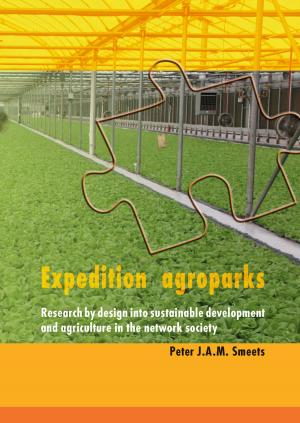New trends for innovation in the Mediterranean animal production
Nonfiction, Science & Nature, Science, Biological Sciences| Author: | ISBN: | 9789086867264 | |
| Publisher: | Wageningen Academic Publishers | Publication: | March 26, 2012 |
| Imprint: | Wageningen Academic Publishers | Language: | English |
| Author: | |
| ISBN: | 9789086867264 |
| Publisher: | Wageningen Academic Publishers |
| Publication: | March 26, 2012 |
| Imprint: | Wageningen Academic Publishers |
| Language: | English |
The Mediterranean area shows a great diversity of livestock systems, depending on local resources and traditions, but also on the networking space where informational resources are available for producers. During the last decades, a lot of innovations have been conceived or introduced in the Mediterranean area, allowing livestock systems to remain competitive. The book looks at two main issues: firstly, it gives an updated review on the main innovations that significantly changed the activities of livestock production in the Mediterranean area in the recent past. Secondly, the focus lies on the extent to which these innovations improve the efficiency, ensure the socio-cultural basis or reduce the environmental impact of livestock systems. One major finding is a new vision of innovating systems based on the distinction between regulated innovation (when aims are fixed) and innovative design (when aims are questioned). Innovations reported in the book are dealing with a set of concerns. They concern the production techniques, the work organization, the equipment and infrastructures, the collective features for selection, reproduction, feeding or sanitary devices. They also concern the local organization such as product labelling, new dynamics around local breeds, collective rules for supply basin or approaches of new products for new markets. More recently, some innovations focus on environmental impacts of livestock production, due to an increasing consciousness of those kinds of problems. In the final part of the book, a round table copes with a crucial question: are traditions in Mediterranean livestock activities to be considered an obstacle or a source of innovation? This book provides a set of updated information and knowledge useful for researchers, students, extension services and policy-makers in the field of animal science.
The Mediterranean area shows a great diversity of livestock systems, depending on local resources and traditions, but also on the networking space where informational resources are available for producers. During the last decades, a lot of innovations have been conceived or introduced in the Mediterranean area, allowing livestock systems to remain competitive. The book looks at two main issues: firstly, it gives an updated review on the main innovations that significantly changed the activities of livestock production in the Mediterranean area in the recent past. Secondly, the focus lies on the extent to which these innovations improve the efficiency, ensure the socio-cultural basis or reduce the environmental impact of livestock systems. One major finding is a new vision of innovating systems based on the distinction between regulated innovation (when aims are fixed) and innovative design (when aims are questioned). Innovations reported in the book are dealing with a set of concerns. They concern the production techniques, the work organization, the equipment and infrastructures, the collective features for selection, reproduction, feeding or sanitary devices. They also concern the local organization such as product labelling, new dynamics around local breeds, collective rules for supply basin or approaches of new products for new markets. More recently, some innovations focus on environmental impacts of livestock production, due to an increasing consciousness of those kinds of problems. In the final part of the book, a round table copes with a crucial question: are traditions in Mediterranean livestock activities to be considered an obstacle or a source of innovation? This book provides a set of updated information and knowledge useful for researchers, students, extension services and policy-makers in the field of animal science.















